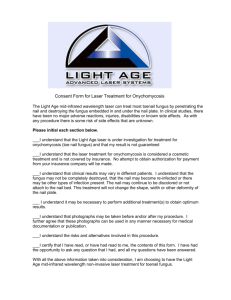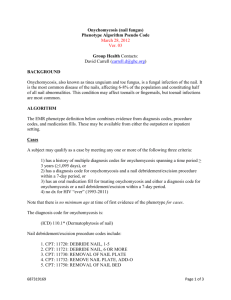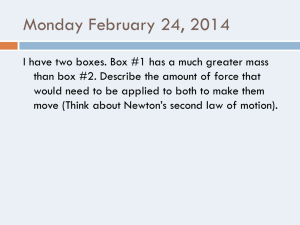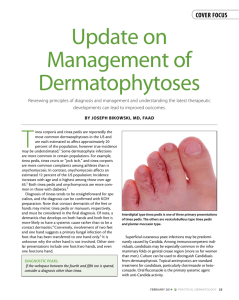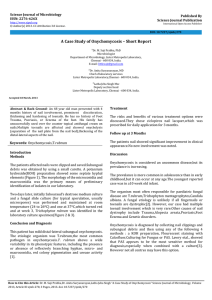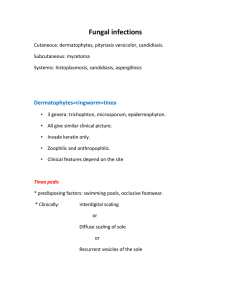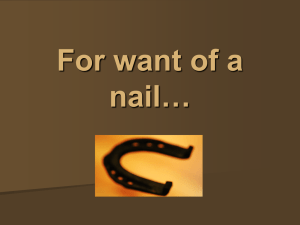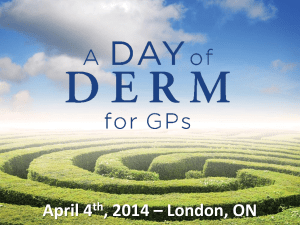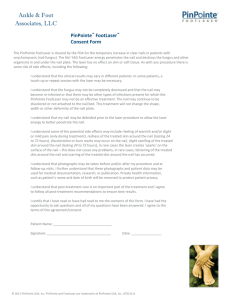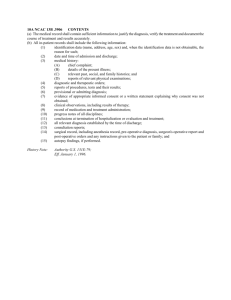View Word DOC
advertisement
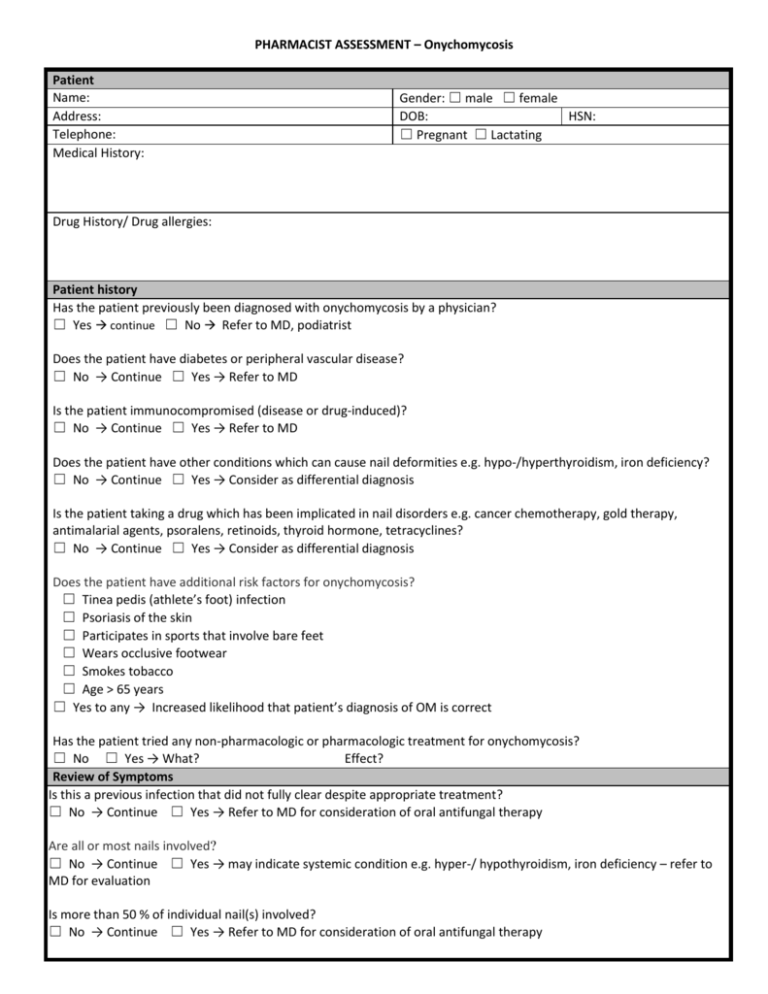
PHARMACIST ASSESSMENT – Onychomycosis Patient Name: Address: Telephone: Medical History: Gender: ☐ male ☐ female DOB: HSN: ☐ Pregnant ☐ Lactating Drug History/ Drug allergies: Patient history Has the patient previously been diagnosed with onychomycosis by a physician? ☐ Yes continue ☐ No Refer to MD, podiatrist Does the patient have diabetes or peripheral vascular disease? ☐ No → Continue ☐ Yes → Refer to MD Is the patient immunocompromised (disease or drug-induced)? ☐ No → Continue ☐ Yes → Refer to MD Does the patient have other conditions which can cause nail deformities e.g. hypo-/hyperthyroidism, iron deficiency? ☐ No → Continue ☐ Yes → Consider as differential diagnosis Is the patient taking a drug which has been implicated in nail disorders e.g. cancer chemotherapy, gold therapy, antimalarial agents, psoralens, retinoids, thyroid hormone, tetracyclines? ☐ No → Continue ☐ Yes → Consider as differential diagnosis Does the patient have additional risk factors for onychomycosis? ☐ Tinea pedis (athlete’s foot) infection ☐ Psoriasis of the skin ☐ Participates in sports that involve bare feet ☐ Wears occlusive footwear ☐ Smokes tobacco ☐ Age > 65 years ☐ Yes to any → Increased likelihood that patient’s diagnosis of OM is correct Has the patient tried any non-pharmacologic or pharmacologic treatment for onychomycosis? ☐ No ☐ Yes → What? Effect? Review of Symptoms Is this a previous infection that did not fully clear despite appropriate treatment? ☐ No → Continue ☐ Yes → Refer to MD for consideration of oral antifungal therapy Are all or most nails involved? ☐ No → Continue ☐ Yes → may indicate systemic condition e.g. hyper-/ hypothyroidism, iron deficiency – refer to MD for evaluation Is more than 50 % of individual nail(s) involved? ☐ No → Continue ☐ Yes → Refer to MD for consideration of oral antifungal therapy Are symptoms consistent with diagnosis of onychomycosis? ☐ Thickened, white to yellow discoloration of distal and lateral edges of nail(s) ☐ Separation of nail from nailbed ☐ Brittle, crumbling nail plate ☐ Yes → Continue ☐ No, consider other conditions (see differential diagnosis) – treat / refer to MD as appropriate Treatment Non-pharmacologic treatment AND ☐ Non-prescription topical Propylene glycol/urea/lactic combination OR ☐ Prescription topical Efinaconazole 10 % solution Apply 1 drop to affected toenail (2 drops if big toenail) once daily Mitte: 6 ml. Refill as needed for up to 48 weeks ☐ Treatment of contributing comorbidities such as Tinea pedis (See Tinea pedis guideline) ☐ Referral to MD for management of contributing comorbities such as diabetes, peripheral vascular disease Prescription Issued Rationale for prescribing: Minor ailments (Describe lesions, location, etc.) Any other relevant information: Rx: Efinaconazole 10 % solution Quantity: 6 ml. Refill for up to 48 weeks Directions: Apply once daily to affected nails Counselling ☐ General measures ☐ Appropriate application technique ☐ Slow onset of effect, duration of therapy ☐ If no improvement after 6 to 8 weeks , or if symptoms worsen, consult MD Follow-up scheduled in 60 days (date): □ In pharmacy □ Telephone (number): ☐ Assess for improvement of symptoms ☐ Assess for new symptoms e.g. cellulitis, paronychia ☐ If worsening or no improvement, refer to MD ☐ If improving, encourage ongoing treatment – may take up to 48 weeks Prescribing Pharmacist: Name: Name of Pharmacy: Email: SIGNATURE Telephone: Fax: DATE:
